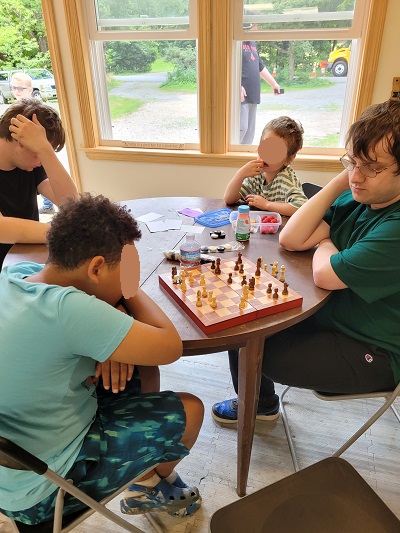One of the barriers to friendship that kids run into is their inability to recognize when their input or advice is not needed or wanted.
An example. Two kids are playing a game of chess. The third child approaches and begins to tell the players what moves they should make or even moves the pieces on the board. This usually upsets the kids that are playing because they haven’t asked for help.
Another example. A couple of tweens are shooting hoops. A younger child comes along and gives a blow-by-blow of what they are doing wrong. One of the tweens becomes very upset with the unwanted criticism.
Both of these scenarios just happened in my summer program this week. What do we do to coach kids regarding this type of interaction? We define the difference between the actions of:
OBSERVING: This is almost always okay with the other kids who are playing something. Observing is done with your eyes, not with your mouth. For older kids, you can stretch it to how you can chat with other people while you are observing, but it needs to be a topic that is not unwanted advice.
HELPING: If the other kids ask for help, such as “I’m stuck on a move, do you have an idea? or “How does this piece move?” then, by all means, it’s perfectly okay to offer a suggestion or your knowledge.
INTERFERING: This is the one that causes problems. If you have not been asked your opinion, advice, or knowledge, then it is not helping, it is now interfering.
There are, of course, a multitude of other scenarios besides gameplay when we can apply this concept. I find gameplay interference one of the easiest ways to teach kids the difference.









Leave a Reply